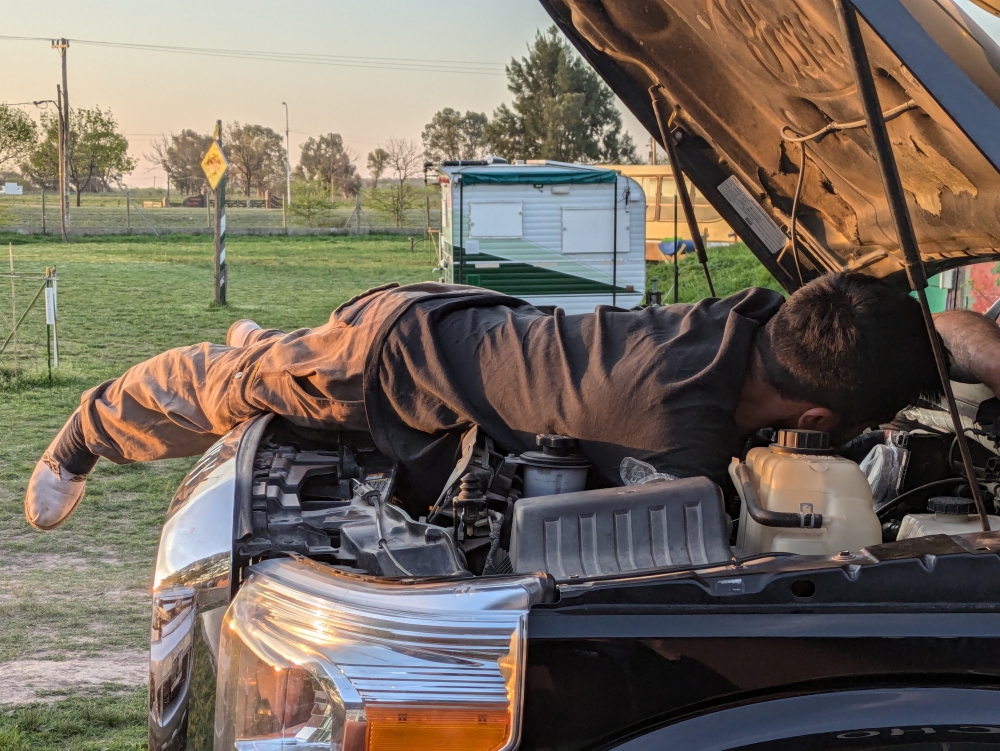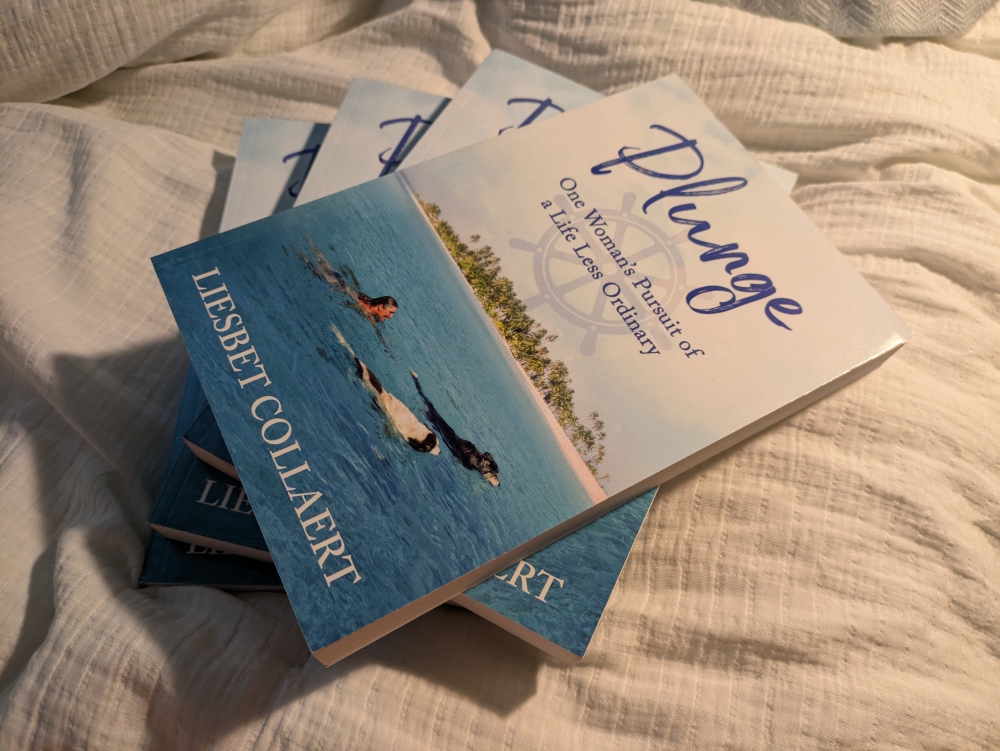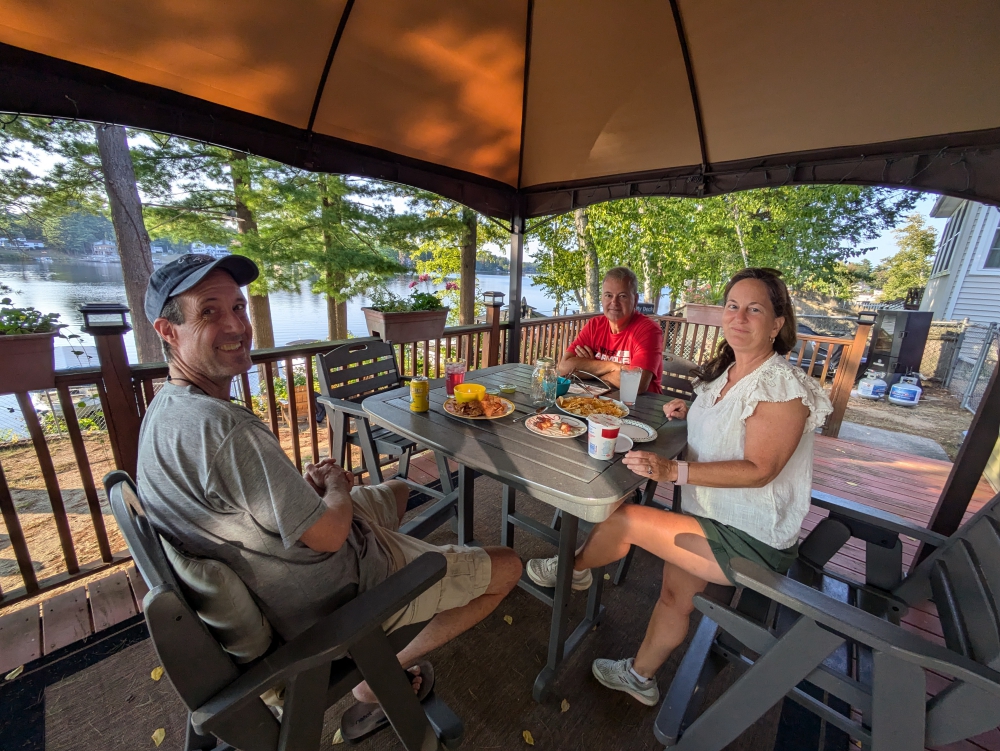
Every month, I post a report of our expenses to show that it is possible to live a comfortable, exciting, and adventurous life without breaking the bank. The less money you spend, the less you need to make. 🙂
This report includes ALL of our expenses, in US$, for two adults and one 60-pound dog (we adopted Maya on June 4th, 2019). Under groceries we incorporate food, produce, and non-alcoholic drinks predominantly bought in supermarkets. Toiletries belong in that category as well. Dining out means eating at a restaurant/event or purchasing take-out food. The health category covers non-prescription medicines and vitamins/supplements; medical contains prescription drugs and doctor’s visits. Because of our income level, Mark and I are eligible for free health care within the state of Massachusetts. For check-ups and extensive care, we return to the US East Coast. Other health issues are resolved locally and out of pocket where needed and possible.
After spending three months in Europe and the US over the summer, Mark, Maya, and I returned to Argentina on September 21st, the first day of spring (primavera) down here. While the initial three weeks of the month had been cheap, thanks to the generosity of our parents regarding food expenses and car use, we immediately blew the budget once we moved back into our truck camper, Thirsty Bella . The flights had been paid for last March.
(As always, hover over or click on photos in galleries to read their captions.)
So, September 2024 was an expensive month for us, especially since we spent it all in the final ten days! Some of the high costs were expected, like Maya’s export permit, storage for our camper, an official campground, and renewing our car insurance for South America; others were not only surprising but also scary…

One of the mechanics needs to lie on the engine to work on it.
Our low-mileage F350 truck engine developed a serious issue – factory induced – when we did some maintenance on it upon our arrival in Argentina. A miss-threaded sparkplug (one of the sixteen) was difficult to remove and appeared to have damaged threads. This made it impossible to replace with a new one and caused profound worries about how to fix the issue. Especially since the spark plug hole was hidden, so out of view and difficult to access. We were stranded!
Long story short: we needed to hire professional, cautious, and capable mechanics who wouldn’t only be willing to drive to our campground an hour and a half outside Buenos Aires, but who could also solve our predicament. The pair came out twice and managed to install the new spark plug without damaging the engine block or anything else. The price tag: US$600 (reduced to $570, since we paid some in the local currency). It would have been cheaper ($500) if we would have possessed the full amount in pesos.
We renewed our Mercasur countries liability insurance for another year for $358, which was three times as high as six months ago! Yes, prices keep rising in Argentina. The storage fee for our camper at Julian’s place was cheap. He charges only 25,000 pesos a month, so we tipped him another 30% to make the bill exactly $100. We also paid $3 for toll roads.
To reach that whopping $1,079 for the car category, we also ordered tools to work on the sparkplug and ignition coils projects, bought fuel for my mother-in-law’s car in the US, and paid $2 for parking at Salisbury Beach, which is very close to our home base in Massachusetts, but I’d never been.
Our camper pantry and fridge were totally empty when we returned to Buenos Aires, so a giant stock-up was needed. On our first day back, we stopped by a small shop for necessities, before reaching the Zapparancho campground, where we’d regroup and prepare for the rest of our South American journey.
After the weekend, we drove to the town of Lujan to visit two supermarkets for a first heavy-loaded run. We immediately missed the diversity and quality of goods we’d gotten used to in the US and Belgium. It will take a few more grocery stops to fill the camper up.
Maya needed a new international health certificate from the US to enter Argentina, so there went another $225. We are super happy that vet fees and shots are much more affordable down south!
Another thing I did back in Massachusetts was reclaim my Plunge books from the local bookstore, where the owner had “archived” them in the storage room, because none had sold in the last two years. Better to distribute them from our camper!

Reclaiming my Plunge books from a local bookstore. The owner had put them in the storage room!
On the first day of our return to the continent, we filled our camper with potable water, installed a new part on the water heater – which leaked and needed a few tightening attempts; we hate plumbing! – and discovered the bathroom faucet was leaking. We use this handle in the sink and as a shower head. Wasting water in a small camper is detrimental.
Who would be returning to Buenos Aires soon as well? Our US motorcycle friends Katherine and Brandon! And, yes, they could bring back the small and light replacement part. We paid more than normal to ship it to their address in time. A few random other parts rounded out the camper category.
In general, our health and fitness category is low, since we rarely go to hair dressers or buy health products. But, a visit to the US is the opportune time to stock up on specialized toothpaste (which I now rely on), a bottle of aloe vera, and nine months’ worth of vitamins.
Mark and I always fly with carry-on luggage only, unless we have a huge amount of gear, products, and/or parts to bring back. In this case, we checked one bag for $60 and donated it afterwards. Many packages waited for us in Massachusetts after our break in Belgium. Most were Vine Voice items, which we order for free in return for an honest review. We brought back a lot of useful products!
We counted on a week at an official campground to get ready for the road again – unpacking, organizing, shopping, cleaning, filling with water, fixing issues, engine maintenance, catching up on sleep, and researching a route and upcoming destinations. Our unexpected engine issue extended that stay, so we paid around $50 for eight nights at Zapparancho.
Two of our three website domain name registrations were due for renewal in September and the monthly subscription fee for our Starlink satellite internet service went up. Depending on the exchange rate, we now pay about $80 a month, half of which is taken care of by our business.
Within an hour of arriving in Bella, after getting Thirsty’s engine started with an extra boost (first things first), Mark unpaused our internet service and reregistered our Starlink account in Argentina instead of Peru, where we’d bought the unit. The fees in Peru had risen enormously and being registered here works better if the policy of only being allowed two months outside of the host country will be enforced.

A nice evening with friends at their lake house in New Hampshire
Money also went to alcohol/wine ($29) in the US as gifts for friends and in Argentina for ourselves, an Uber taxi from the airport in BA to our camper 45 minutes away ($22), shared meals at Zapparancho and a food stand choripan ($18), a new doormat and baskets from Dollar Tree ($4), and laundry ($3).
The chocolate we brought back and our share of the Airbnb we rented with our German friends in Liege was paid for with my Belgian funds, which are not part yet of our bookkeeping records.
While our total amount for September is well above average, we did manage to stay under $2,000 despite the extra expenses. We boondocked after leaving Zapparancho and are cooking all our meals at home. Having been “sponsored” in Belgium, I did realize that Mark and I never went out for a meal just the two of us, there or anywhere else, in the last four months.
On the plane back home to Bella, I promised myself I would become less frugal when it comes to spoiling ourselves, which includes eating out. It’s something we thoroughly enjoy and, you know, cooking and doing dishes every evening gets old. Then, we faced that extra $600 bill for the engine (the world’s most expensive sparkplug), and my intentions went out the window! Give me a few months without unexpected bills and I might reconsider again. ????
September 2024 Overview:
Car (rep.: $581; ins.: $358; parking: $102; fuel: $35; tolls: $3):
Groceries:
Dog (US health certificate):
Camper:
Health & Fitness (toiletries & vitamins):
Travel (checked bag fee):
Camping:
Computer (hosting fees):
Utilities (Starlink internet):
Alcohol:
Transportation (Uber airport):
Drinking out (shared meals):
Household:
Laundry:
TOTAL:
$1,079
$235
$225
$98
$66
$60
$48
$44
$39
$29
$22
$18
$4
$3
———
$ 1,970
(It might be easier to read the table when turning your device in the horizontal position.)
Find all our expense reports here. To learn what other full-time nomads spend each month, check out the blogs of our vanlife friends Duwan and Greg at Make Like An Ape Man.
Next up: A one-week vacation in the Black Forest of Germany.
If you are enjoying these posts, please consider donating to Roaming About in support of our website and our lifestyle. A big thank you to all our readers who have helped out in the past!
































































